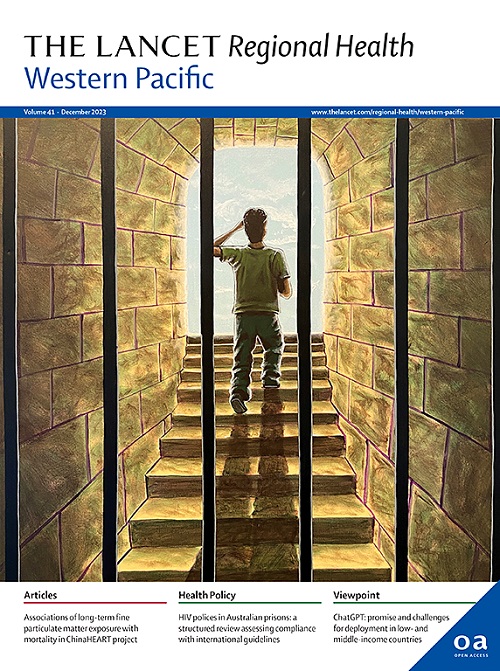Bangkok declarations on cancer control in Asia
IF 8.1
1区 医学
Q1 HEALTH CARE SCIENCES & SERVICES
引用次数: 0
Abstract
The “Bangkok Declarations” highlight key strategies to reduce the cancer burden in Asia. Recognizing the role of lifestyle factors like tobacco use, unhealthy diets, and inactivity, they advocate for public health initiatives promoting healthier communities. Environmental risks must also be addressed to enhance prevention strategies. Vaccination programs targeting cancer-causing viruses are emphasized for reducing incidence rates. However, limited access to cancer screening and early detection services remains a challenge, requiring improvements to boost early intervention and patient outcomes. The financial burden of cancer treatment is critical, necessitating cost-effective therapies and financial support systems. Mental health support for patients and caregivers is essential for holistic care. Digital health technologies and AI offer promise for improving diagnosis and treatment in resource-limited settings. Collaboration among stakeholders is vital, with culturally sensitive approaches ensuring equitable care. Research should focus on lifestyle, environmental factors, innovative prevention, and access to care for effective cancer control.
亚洲癌症控制曼谷宣言
《曼谷宣言》强调了减轻亚洲癌症负担的关键战略。认识到吸烟、不健康饮食和缺乏运动等生活方式因素的作用,他们倡导采取公共卫生举措,促进更健康的社区。还必须处理环境风险,以加强预防战略。针对致癌病毒的疫苗接种计划被强调以降低发病率。然而,获得癌症筛查和早期发现服务的机会有限仍然是一个挑战,需要改进以促进早期干预和患者预后。癌症治疗的经济负担至关重要,需要具有成本效益的治疗方法和财政支持系统。对病人和照顾者的心理健康支持对整体护理至关重要。数字卫生技术和人工智能为在资源有限的环境中改善诊断和治疗提供了希望。利益攸关方之间的合作至关重要,采取具有文化敏感性的方法确保公平护理。研究应侧重于生活方式、环境因素、创新预防和获得有效癌症控制的护理。
本文章由计算机程序翻译,如有差异,请以英文原文为准。
求助全文
约1分钟内获得全文
求助全文
来源期刊

The Lancet Regional Health: Western Pacific
Medicine-Pediatrics, Perinatology and Child Health
CiteScore
8.80
自引率
2.80%
发文量
305
审稿时长
11 weeks
期刊介绍:
The Lancet Regional Health – Western Pacific, a gold open access journal, is an integral part of The Lancet's global initiative advocating for healthcare quality and access worldwide. It aims to advance clinical practice and health policy in the Western Pacific region, contributing to enhanced health outcomes. The journal publishes high-quality original research shedding light on clinical practice and health policy in the region. It also includes reviews, commentaries, and opinion pieces covering diverse regional health topics, such as infectious diseases, non-communicable diseases, child and adolescent health, maternal and reproductive health, aging health, mental health, the health workforce and systems, and health policy.
 求助内容:
求助内容: 应助结果提醒方式:
应助结果提醒方式:


